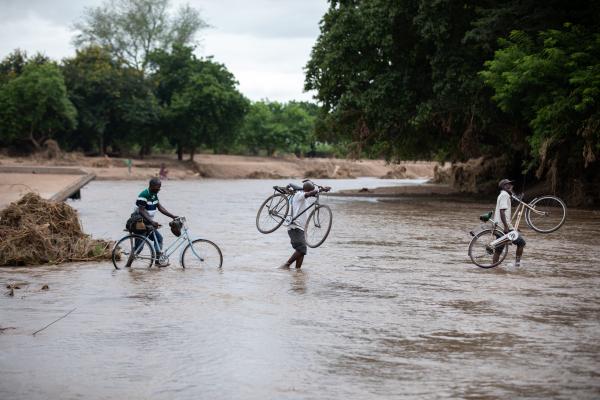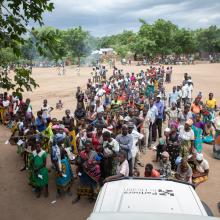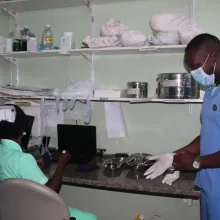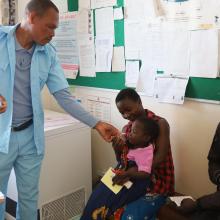As a record-breaking storm winds down after battering Malawi and neighboring nations, Partners In Health’s emergency response team is tending to patients with medical assistance and other emergency support.
Cyclone Freddy hit Southern Malawi on March 13, after making landfall in Mozambique. Now, the storm, reported to be the longest-lasting tropical cyclone ever recorded in the southern hemisphere, has left more than 679 people dead in Malawi, with 2,178 injured, according to a March 16 report from the country’s Department of Disaster Management Affairs. More than 537 people are missing, the report states, and 659,278 people have been displaced.
Death Toll Rising
The casualty toll is expected to rise, officials said, as a result of widespread flooding, mudslides, and collapsed buildings. Compounding the devastation, Malawi is grappling with a cholera outbreak that has already killed more than 1,500 people.
At Abwenzi Pa Za Umoyo (APZU), as Partners in Health is known in Malawi, teams based in Neno District, where storm damage is currently minimal, have been asked by the Ministry of Health to support the emergency response in harder hit areas to the south. That support will initially be directed at the city of Blantyre, the second largest in the country, which to date has the highest number of casualties, and is within 10 districts that have been officially declared disaster zones, according to reports.
Extending Support to Hard-Hit Regions
APZU is coordinating with Neno District Local Council and the District Health Office to support ongoing assessments and follow-ups where there is a need for support.
Through the Emergency Operations Center, a unit created to facilitate humanitarian coordination between government, NGOs, and development partners, APZU’s support is being extended to other affected areas beyond Neno District.
The cyclone has compromised infrastructure throughout Malawi, making some roads unnavigable and causing blackouts. APZU is anticipating how this will affect supply chains and is preparing accordingly to ensure patient care remains constant.
While all of the 14 health centers in Neno remain open, three of them—Matope, Nsambe and Dambe— are largely inaccessible except to foot traffic due to poor road conditions, officials said. All other facilities remain accessible.
APZU and Chikwawa Team en route to a camp in Chikwawa. Photo by Madock Masina (APZU/PIH)
A Potential Cholera Surge
Beyond the potential for more storm-related deaths and damage, officials are worried that Freddy will exacerbate what has been deemed the country’s deadliest cholera outbreak on record, which began in March 2022. To date, the recent outbreak has killed more than 1,500 people in Malawi. APZU team leaders said they are preparing for another surge of the water-borne bacterial disease. Flooding and damaged infrastructure, specifically water and sanitation systems, can contaminate water sources and spread cholera, they added.
To date, over 50,000 cholera cases have been reported in Malawi. While instances of cholera in Neno District have been low compared to the rest of the country, the APZU team is poised to respond to an increase in disease.
Cholera is a deadly disease that can cause severe diarrhea and vomiting. Children, the elderly and patients struggling with other illnesses are often most affected, and can quickly become dehydrated, go into shock, and die within 24 hours if they are not treated. The disease can spread rapidly, depending on the frequency of exposure, the exposed population, and the setting. The incubation period is between two hours and five days after ingestion of food or water contaminated by sewage bearing the bacteria, Vibrio cholera.
This summer, a massive cholera vaccination campaign reached a total of 87,352 individuals, or 59% of the district’s target population, who were given both doses of the vaccine, meaning they are fully vaccinated. More than 86% of the population received at least one dose of the oral cholera vaccine during the campaign.
That effort is one possible reason that cholera cases in Neno District were relatively low compared to other regions in Malawi, APZU leaders said.




